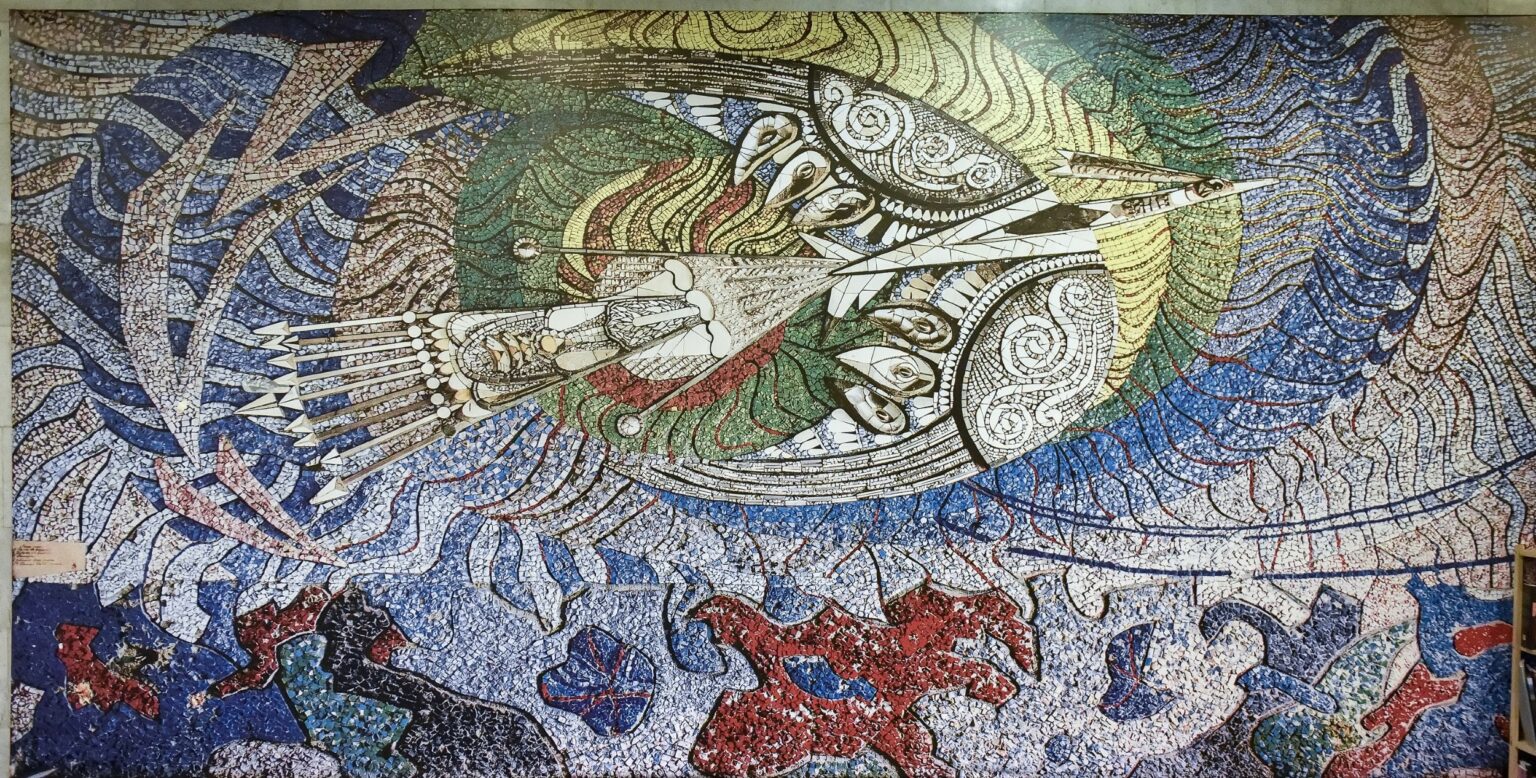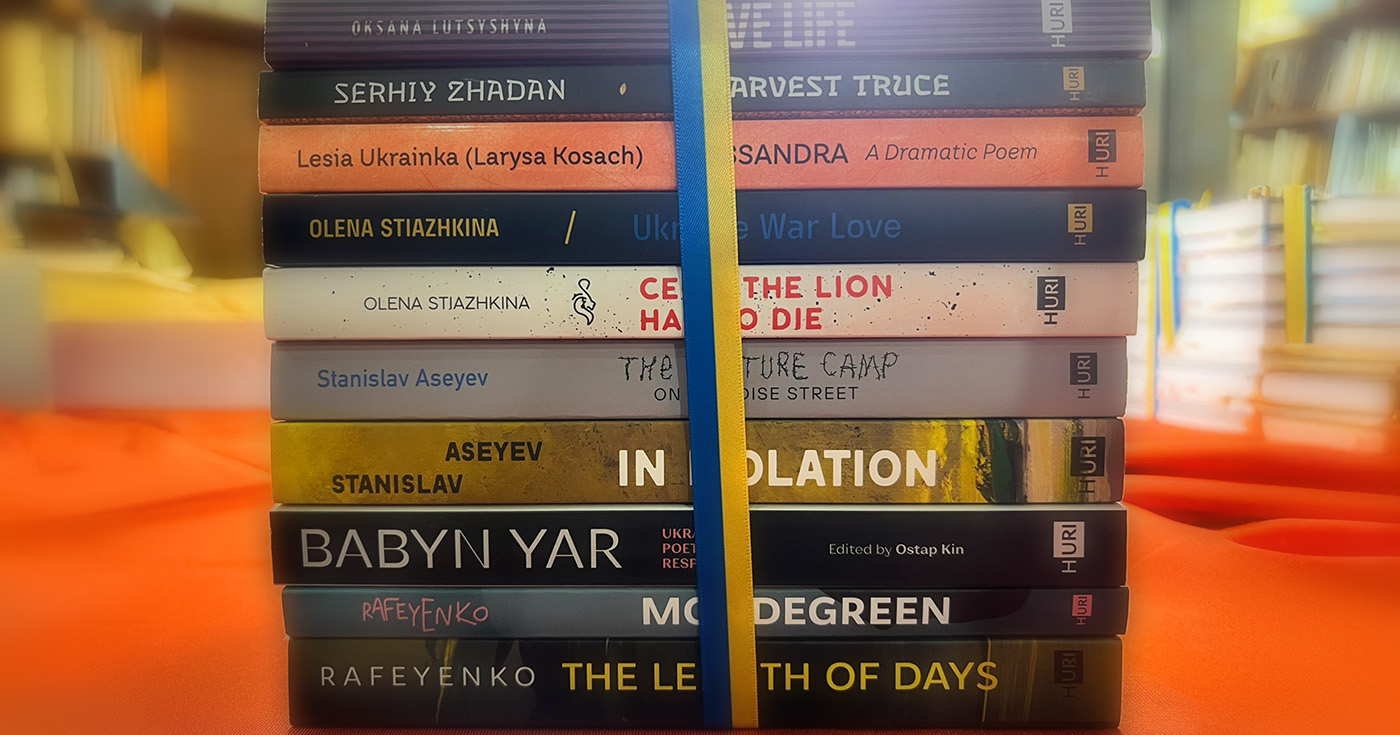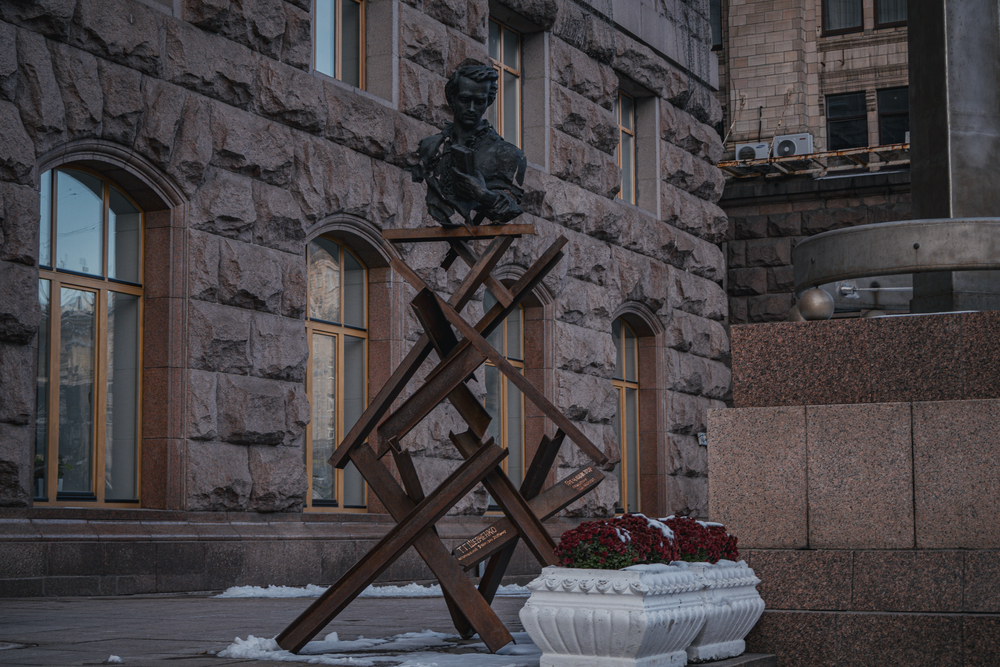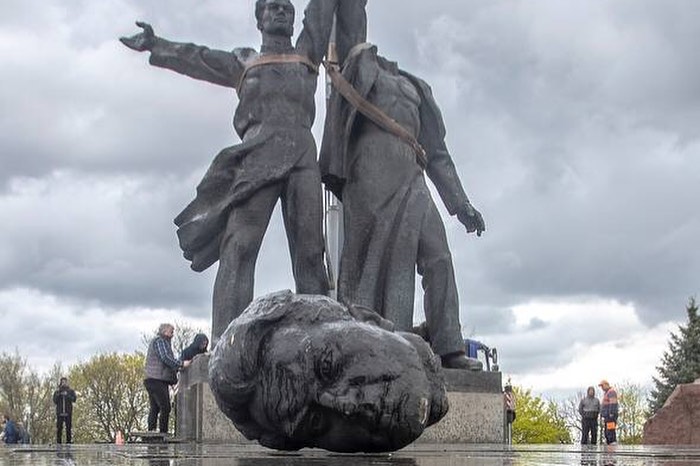The US National Endowment for the Humanities (NEH) has terminated a grant for publishing Ukrainian literature in English translation at Harvard Ukrainian Research Institute (HURI), citing a repurposing of funds "in furtherance of the President's agenda," according to Oleh Kotsyuba, Director of Print and Digital Publications at HURI.
"The way that this termination affects us is that it basically limits our ability to work on these projects," Kotsyuba told Euromaidan Press. "We were supposed to be able to hire a part-time editor to work on the projects for the next two years, and now, because of the termination of this grant, we won't be able to do that, which obviously puts them in jeopardy."
The termination comes at a critical time when preserving and promoting Ukrainian culture and pushing back against Russian imperial narratives has taken on heightened significance during Russia's ongoing war against Ukraine, which began with the full-scale invasion on 24 February 2022.
HURI's publications program has published 14 volumes of Ukrainian literature in translation over the past three and a half years, establishing itself as a leading platform for making Ukrainian voices accessible to global audiences. This was the first such federal grant the institute had received for its publications in over 30 years, according to Kotsyuba.
In August 2021, HURI launched the Harvard Library of Ukrainian Literature series dedicated to publishing outstanding Ukrainian literature in English translation. The inaugural titles included "The Voices of Babyn Yar" by Marianna Kiyanovska, "Babyn Yar: Ukrainian Poets Respond" edited by Ostap Kin, "In Isolation: Dispatches from Occupied Donbas" by Stanislav Aseyev, and "Mondegreen: Songs about Death and Love" by Volodymyr Rafeyenko. Two of these works were awarded Ukraine's National Shevchenko Prize, the country's highest award in literature and culture.
Projects in jeopardy
Several significant translation projects are now at risk, including an anthology of Ukrainian Jewish poetry edited by Ostap Kin, which Kotsyuba describes as "an absolutely unique publication bringing together for the first time in Ukrainian and in English Ukrainian Jewish poetry and presenting it to the wide international audience."
Other endangered projects include the novel "The Learned Dr. Leonardo's Journey to Sloboda, Switzerland with his future lover, the beautiful Alceste," by Maik Yohansen, a Ukrainian writer executed by Stalin's secret police NKVD in 1937, and two plays by Lesya Ukrainka: "The Blue Rose," her first play, and "The Boyer's Wife," which addresses Russia's cultural and political incorporation of Ukraine and ways to resist it.

"Lesya Ukrainka, of course, is a cultural icon of Ukrainian literature that is very little known outside of Ukraine. And these two plays were supposed to change that perception," Kotsyuba explained.
"In terms of future publications, there is definitely a lot of demand and need to publish Ukrainian classics as well as the works of Ukrainian modernist literature, which remains almost entirely unknown to the world," Kotsyuba notes. "And of course, the more contemporary works also need to be published because they basically inform the people outside of Ukraine about what it looks like on the ground when your country is attacked."
Financial strain amid crucial cultural mission
The termination places significant financial strain on HURI, which operates independently from Harvard University's general endowment.
"We are entirely self-funded. We pay rent, utilities, maintenance, and so on out of our own funds that were collected back in the 1960s and 70s in the course of a grassroots campaign to create the institute and endow the three positions in Ukrainian studies at Harvard," Kotsyuba noted. "We do not receive any direct support from the Harvard general endowment."
According to the Kyiv Independent, the grant from the National Endowment for the Humanities, was just under $200,000. It would have allowed the Institute to showcase Ukrainian contemporary and classic literary works to English-language audiences, bringing them from out of the shadow of Russian imperial narratives.
The institute is now seeking alternative funding sources to continue its vital work in preserving and promoting Ukrainian literature. "At this time we are primarily trying to find sources to replace this funding and so we call on all people of goodwill, on people who have meaningful wealth to be able to support this project, this program, to contribute, to donate to the publications and help us continue with publishing these works," Kotsyuba said.
Cultural visibility in wartime
HURI's translation work is important beyond academia. It addresses a critical gap in global awareness of Ukrainian culture.
"The importance of publishing translations of Ukrainian literature is because that format allows us to make content from Ukraine available for the public," Kotsyuba explains. "For example, there are a number of other projects that would help inform the international community and broad audiences about Ukraine, Ukrainian history, and culture. For example, you cannot create a film without first having text. The same goes for graphic novels and other formats. If we speak, for example, about a popular format such as an audiobook, it first requires a translation to be published."
The lack of translated Ukrainian literature contributes to what Kotsyuba calls "the invisibility of Ukrainian culture, which indirectly would support the claims that the Russian ruler has made, Vladimir Putin, about Ukraine being, quote-unquote, an artificial country, artificial people, seemingly the same as Russians."
This invisibility of Ukrainian culture in the Anglophone world has deeper historical roots, as noted by British-Ukrainian poet and translator Stephen Komarnyckyj.
"I could pick up English University textbooks in the seventies and see Ukrainian described as a dialect and its literature as 'minor.' The West was blind to the reality of intra-European colonization. The views of Ukraine's colonizing power, Russia, were treated as if they had the scientific validity of Boyle's law," Komarnyckyj wrote, discussing the challenges of introducing Ukrainian literature to English-speaking audiences.
"What I might call the Russian paradigm of a primitive Ukrainian peasantry being civilized by its more advanced neighbor prevailed. This is a gross untruth, yet it means that Ukrainian is reflexively treated as inferior," Komarnyckyj added, highlighting the importance of initiatives like HURI's that present Ukrainian literature on its own terms.

It’s time to free Ukrainian studies from behind the Russian curtain
Part of broader funding cuts
The NEH grant termination appears to be part of a larger pattern of funding cuts to cultural and international aid programs under the Trump administration. In late March, the US State Department informed Congress of plans to dismantle the US Agency for International Development (USAID) and has already cut 83% of USAID programs globally.
US Secretary of State Marco Rubio justified these cuts, stating, "We are reorienting our foreign assistance programs to align directly with what is best for the United States and our citizens," according to a post on X on 28 March.
For Harvard's Ukrainian Research Institute, which has been cultivating scholars in Ukrainian history, language, and culture since its founding in 1973, the path forward now relies on public support through donations as it navigates this unexpected funding crisis during a critical period of Ukraine's cultural resistance.
Readers can also help by purchasing books directly from HURI or requesting their local libraries acquire these important works of Ukrainian literature.
More on Ukrainian literature
-
Eleven books to understand Ukraine’s ongoing struggle: a shortlist by Ukrainian politicians
-
Discover Ukrainian literature, movies in the largest-yet English-language database
-
Transreading Ukrainian Poetry: the first course inspiring English writers through Ukraine’s literature
-
Ukrainian translations, Russian oppression, and soft power
-
Trump administration cuts funding for Ukrainian literature translations at Harvard



